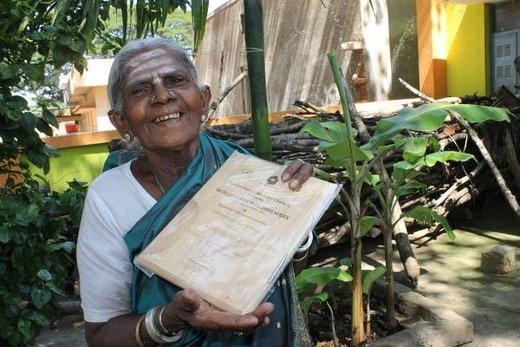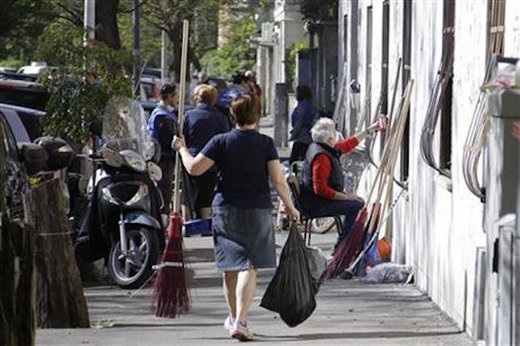This recording is from the 1986 Continental Indigenous Council. Lee Brown sums up the Hopi prophecies and compares them to other tribes and predictions & the accuracy of major world events predicted by the HOPI Elders is astonishing. Is the third shaking of the world imminent? Are we living through it right now?
|
2,110,846 views Feb 14, 2022 #InspiredChannel #HopiProphecy #Apocalypse This recording is from the 1986 Continental Indigenous Council. Lee Brown sums up the Hopi prophecies and compares them to other tribes and predictions & the accuracy of major world events predicted by the HOPI Elders is astonishing. Is the third shaking of the world imminent? Are we living through it right now?
0 Comments
Penny Wittbrodt's Near Death Experience (NDE) and how she got out of the void. God showed her a future event with her grandson, taught her the power of thoughts, and why forgiveness is so important. This is her NDE testimony. Full Unedited NDE Interview https://youtu.be/c8k4tivVj1k Philadelphia now has more than 20 bright yellow refrigerators sitting on sidewalks outside homes and restaurants, offering free food to anyone passing by. On the front of the fridges is written: "Free Food; take what you need, leave what you don't." Volunteers keep the fridges clean and stocked with food donated from grocery stores, restaurants, local farmers and anyone with extra to share.
The concept of the community fridge - sometimes called a 'freedge' - has been around for more than a decade, but it exploded during the pandemic as hunger spiked in the USA and worldwide. There are now about 200 of these community fridges in the United States, up from about 15 before the pandemic. "What we're learning is when you do something like this, people will support it. People do have goodness and kindness and they will bring food." said Michelle Nelson, founder of Mama-Tee.com, which now runs 18 bright yellow fridges in Philaldelphia and has been inundated with requests to put more in place throughout the country. Nelson said the effort is part of the movement known as 'mutual aid', where people - even those struggling - want to help one another and have a stake in the project. April 5, 2021, Yes! Magazine
https://www.yesmagazine.org/video/portland-mutual-aid-food-insecurity Gabriel Baron first heard about Crisis Kitchen through a call for support he saw on Facebook. The mutual aid group was providing free meals around Portland, Oregon, to combat food insecurity exacerbated by the COVID-19 pandemic. “I’m a believer in local communities supporting local communities” Baron says. So he volunteered to deliver meals for the kitchen. As he did so, he started having conversations with folks in the organization. Baron, a filmmaker, decided to bring his camera to the Crisis Kitchen. He said he was interested in demystifying mutual aid for viewers. It’s not an unwieldy and hierarchical institution. It was as simple as laid-off restaurant employees asking to use the kitchen to prepare food for people in their community. And the effort has snowballed from there. The group now delivers about 1,000 free, restaurant-quality meals around the city every week. Crisis Kitchen is one of a network of mutual aid groups in Portland working to build a more supportive and just community. In the film, Adrian Garcia Groenendyk, the co-founder of Crisis Kitchen, says mutual aid demonstrates what can be done to meet people’s needs and help them thrive in our society. Long-term, he says this critical work shouldn’t be dependent on community donations. The goal should be to take money out of institutions of violence and put it into institutions of care, like Crisis Kitchen. Baron continues to deliver meals for Crisis Kitchen every week. April 10, 2021, CNN News
https://www.cnn.com/2021/04/10/us/california-town-is-paying-homeless-to-pick-up-trash... A pilot project in a California town is paying homeless residents to tidy up their living areas, and it's changing the culture of the city. The idea stemmed from a conversation with one of the city's police sergeants, said Sarah Bontrager, the housing and public services manager for Elk Grove, a city of 174,000 people located 15 miles south of Sacramento. "We got together to talk about homelessness, and from my prospective I wanted to build better relationships with people who were experiencing homelessness, and he wanted to address some of the complaints that come to his officers," Bontrager told CNN. The number one complaint surrounding homelessness was the amount of trash. "Our public works staff were previously doing cleanups out at encampment sites ... and just spending a lot of time and money doing it. We also wanted a way to reduce interactions at the early stages of Covid," she said. So they came up with the idea to offer an incentive to those who live in the homeless encampments to clean up their area. "We distribute trash bags, and we go out every two weeks to pick up the trash, and if they have it bagged, they are eligible for up to $20 in gift cards to a grocery store," Bontrager said. The recipients can use the gift cards on anything but cigarettes and alcohol. Bontrager said that they usually use them for food or hygiene items. Many of the homeless residents have expressed how thankful they are to be able to go pick out items themselves instead of relying on shelters. Over A Thousand People Came Together To Break a Record And Bring This Moving Christmas Hymn To Life.
The Piano Guys, Peter Hollens, David Archuleta, and the Mormon Tabernacle Choir get together to sing "Angels We Have Heard On High". A SMILE costs nothing, but gives much. It enriches those who receive, without making poorer those who give. It takes but a moment, but the memory of it sometimes lasts forever. None is so rich or mighty that he can get along without it, and none is so poor but that he can be made rich by it.
A SMILE creates happiness in the home, fosters goodwill in business, and is the countersign of friendship. It brings rest to the weary, cheer to the discouraged, sunshine to the sad, and it is nature's best antidote for trouble. Yet it cannot be bought, begged, borrowed or stolen, for it is something that is of no value to anyone until it is given away. Some people are too tired to give you a SMILE. Give them one of yours, as none needs a SMILE so much as he who has no more to give. Author unknown "As we express our gratitude, we must never forget that the highest appreciation is not to utter words, but to live by them."
- John F. Kennedy Souvik Ray : India Times Saalumarada Thimmakka lives in the Hulikal village of Karnataka. At 103, she still lives on to tell the story of her life which was filled with hardship but bore fruit in a different kind of way. As a young girl, she was married off to a farmer who made a meagre income and was looked down upon by his fellow villagers for not fathering a child with his new wife. Instead of following social protocol, they decided to plant tree saplings and tend to them as their own children. Nurturing the 10 grafted saplings on a bare stretch of land four kilometres from their village (between the villages of Hulikal and Kudoor, about 80 km away of Bangalore) they endured the hardships of tending to the plants despite their limited economic resources. The following years, they planted more saplings, in the hope that they would grow and beautify the land. Today, the fully grown banyan trees are at an economic value of Rs. 15 Lakh and are managed by the Government of Karnataka. Despite being felicitated and awarded by several state and national organisations, Thimmakka still lives below the poverty line. Her home cannot accommodate the certificates and medals while her bills still remain unpaid. Her only means of income is a government pension of Rs. 500. She is still a staunch supporter of afforestation and does all she can to spread awareness. Her belief is that every person should leave behind an asset that benefits all humanity. After adopting a son, whom she inspired to be passionate about the environment, Thimmakka still dreams of starting a hospital. She hasn't given up on her hopes and aspirations yet.
This story, with more photographs, can be found here. Frances D'Emilio : The Big Story : 29 Apr 2016 © AP Photo/Alessandra Tarantino : Volunteers clean the banks of the Tiber river, Rome, as part of the Retake Rome gathering, Sunday April 17, 2016. Tired of waiting years for the city to replace diseased trees and do other work, Romans are starting to take back their city. Armed with shovels and sacks of cold asphalt, Rome's residents fill potholes. Defying rats, they yank weeds and bag trash along the Tiber's banks and in urban parks. Tired of waiting years for the city to replace diseased trees, neighbors dig into their own pockets to pay for new ones for their block. Romans are starting to take back their city, which for years was plundered and neglected by City Hall officials and cronies so conniving that some of them are on trial as alleged mobsters. In doing the work, Romans are experimenting with what for many Italians is a novel and alien concept: a sense of civic duty. One windy recent Sunday morning, Manuela Di Santo slathered paint over graffiti defacing a wall on Via Ludovico di Monreale, a residential block in Rome's middle-class Monteverde neighborhood. Men, perched on ladders, used mechanical sanders to erase graffiti on another palazzo. Women and children swept up litter, filling black plastic trash bags provided by the city's sanitation service, which is only too glad to have someone do the job for free. "Either I help the city, or we're all brought to our knees," said Di Santo. Splotches of paint stained a blue bib identifying her as a volunteer for Retake Roma, a pioneer in an expanding array of citizen-created organizations in the past few years aimed at encouraging Romans to take the initiative in cleaning and repairing their city. © AP Photo/Gregorio Borgia : Volunteers clean a sidewalk as part of the Retake Rome gathering in Rome, Sunday, April 10, 2016. Tired of waiting years for the city to replace diseased trees and do other work, Romans are starting to take back their city Local politicians had been in cahoots with gangsters, shady go-betweens and corrupt city hall bureaucrats, prosecutors allege in investigations that have led to dozens of arrests since 2014. Some defendants are accused of using Mafia-like methods of intimidation to get their hands on lucrative public-works contracts.
Rome's last mayor, who failed in the Herculean task of cleaning up Rome literally and morally, was virtually forced to quit halfway through his term in 2015. Until mayoral elections this June, the Italian capital is being administered by a government-appointed commissioner, under a formula similar to what happens when Italian City Halls are under the grip of organized-crime syndicates. Retake Roma, which does cleanup projects all over the city, has been enjoying a surge of citizen support, especially since the explosion of the scandal in 2014 led Romans to realize that much-maligned city services like transport and sanitation had been used for patronage jobs for years. With prosecutors still combing through hundreds of municipal contracts to expose even more alleged kickbacks, payoffs and other corruption, and processes to award contracts are scrutinized under tightened City Hall anti-corruption measures, services for the public have been deteriorating further. Trash piles up. Potholes sprout like weeds, tripping up pedestrians and sending motor-scooter drivers into nasty spins. Gaetano Capone, who serves on a local district council, joined some 30 neighbors one spring Saturday to rake up broken beer bottles, soda cans and cigarette butts from outside a commuter train station. Volunteers at the local Monteverde Vecchio 4Venti Neighborhood Committee paid a gardener to cut down waist-high weeds. Romans "understand that the city machinery doesn't work anymore," said Capone. Calls and text messages pour into Cristiano Davoli's cellphone from citizens alerting him to ominously widening potholes on their block or routes to work. On weekends, Davoli and four helpers — an off-duty doorman, a graphic artist, a government worker and a retiree — who call themselves "Tappami" (Fill Me Up) load their car trunks with donated bags of cold asphalt and fan out. "Sometimes it's the municipal traffic police who call me," said Davoli, a shopkeeper. After the first anti-corruption arrests, Sicilian anti-Mafia magistrate Alfonso Sabella was summoned to Rome for the hastily created post of city legality commissioner to get a handle on just how badly corruption, favoritism and ineptitude infected City Hall. "It was worse than I thought," said Sabella, who was frustrated that his office wasn't assigned more personnel. Starting with the run-up to the 2000 Holy Year, when government funds flooded the Italian capital to prepare for millions of extra pilgrims, "big projects became popular" with politicians, recalled Sabella. "If you do maintenance on city buses, nobody notices; if you make a new metro station, yes." Rome's mass transit system is roundly scorned. Not infrequently, passengers have to yank shut doors after drivers pull away from bus stops as malfunctioning doors fail to close, with riders perilously close to falling out of the bus. American architect Tom Rankin organizes river bank cleanups by Tevereterno, a volunteer group dedicated to making the Tiber, which winds through the heart of Rome, more pleasant for strollers and cyclists. He noted that Retake Roma was inspired by an American who cleaned up the Rome building where she lived, exposing Romans to a deeply rooted American tradition of working together for one's community. Sweeping sidewalks on Via Ludovico di Monreale, Brunella Fraleoni, who is married to an American and previously lived in the United States, pondered a moment when asked why pitching in with neighbors to clean streets is only just catching on in Rome. "The idea of fixing up something is very poorly rooted in Italy. Maybe it's because we're used to ruins," she said with a wry laugh. Then she turned serious. She and her neighbors were out there, she said, to "inspire public opinion. Not just cleaning to clean." |
QUICK INFO
Author:
_Messenger Spirit This section is for interesting items which are brought to my attention but which do not merit a separate article.
I welcome your comments, questions or suggestions on any topics you wish to contribute to this section. Please submit these on the Contact and Feedback Form PLEASE DO NOT SUBMIT COMMENTS ON THE FORM WHICH APPEARS UNDER ITEMS ON 'QUICK INFO'; THIS SYSTEM IS NOT WORKING. Categories
All
Archives
July 2024
|








 RSS Feed
RSS Feed